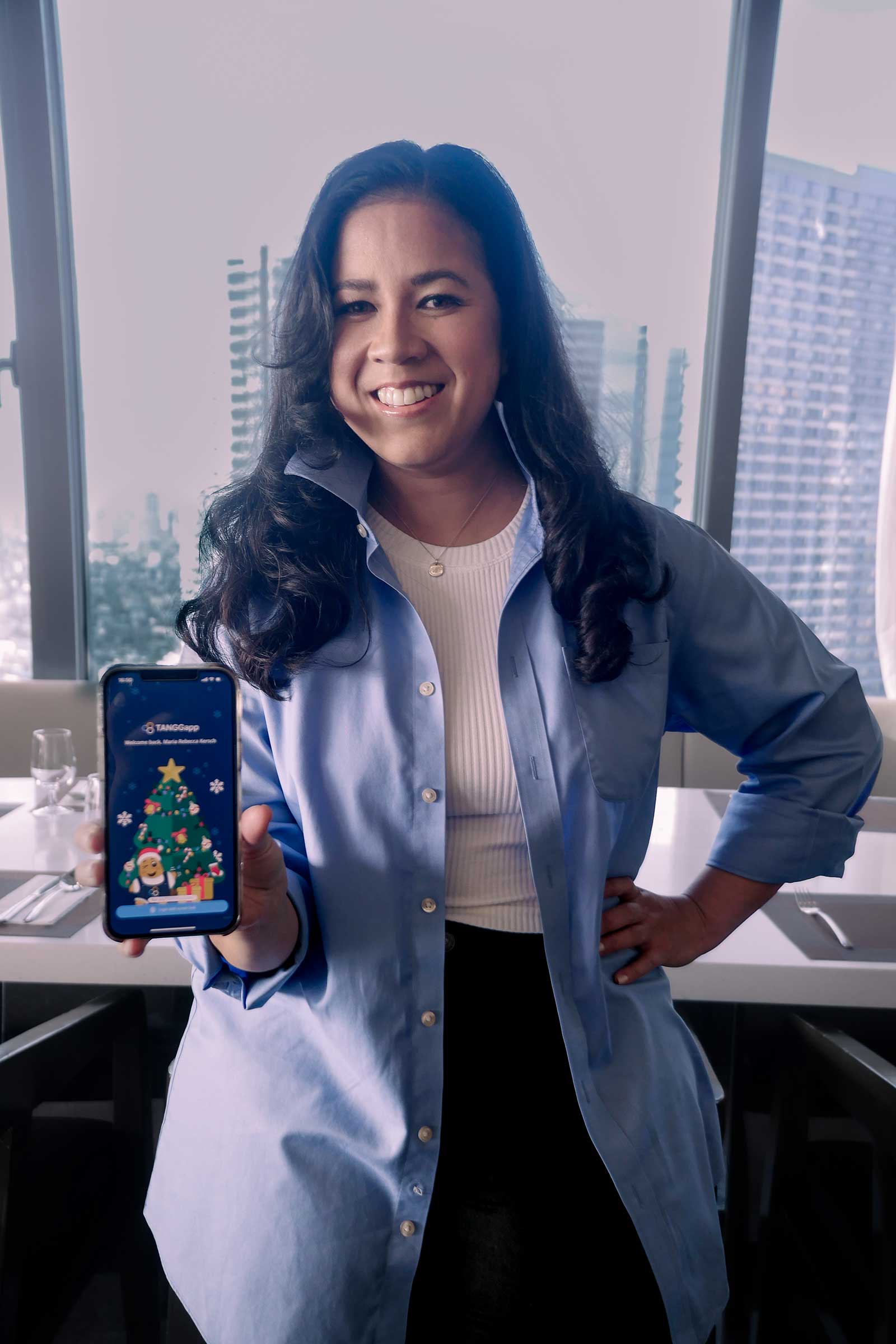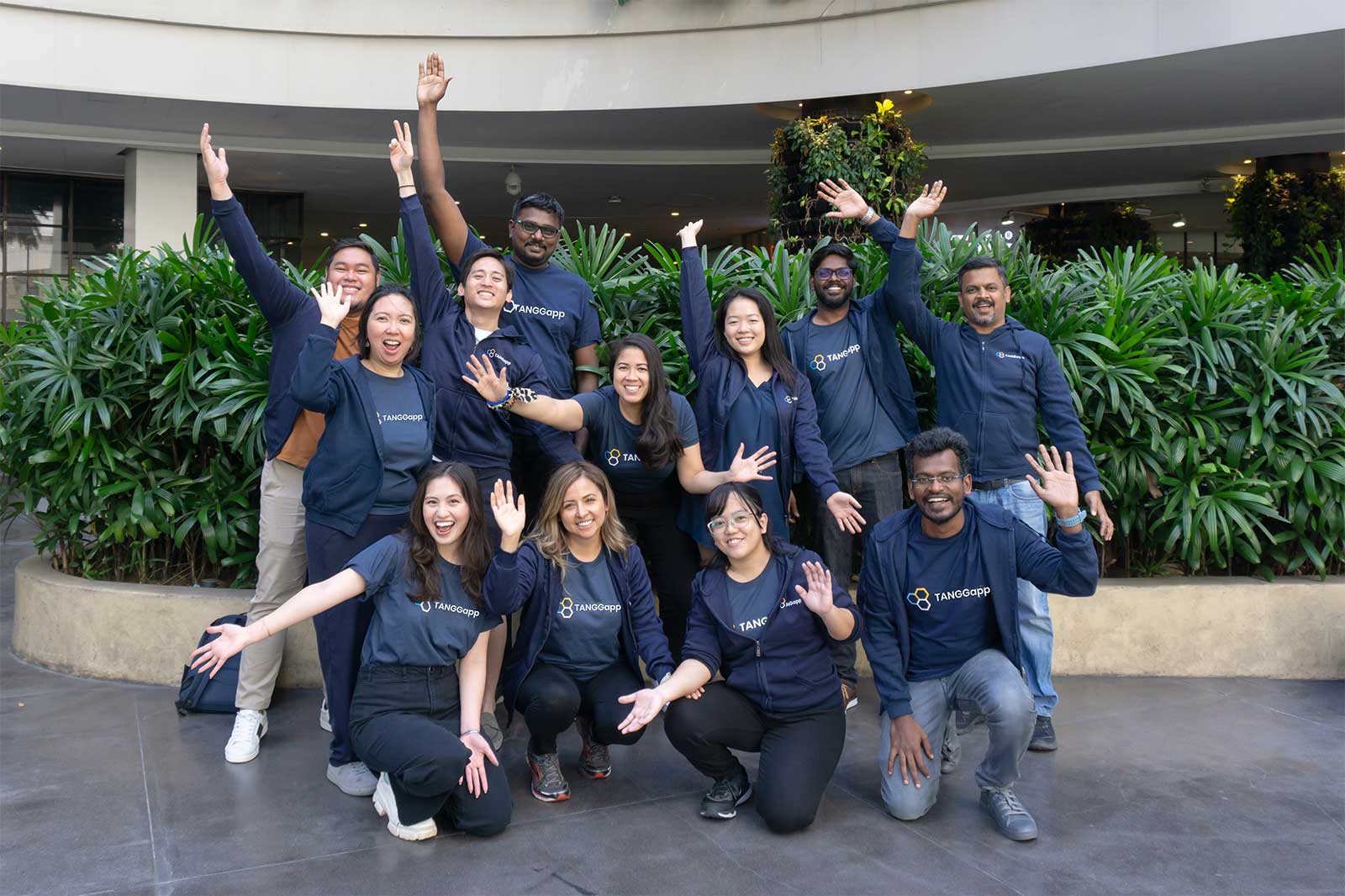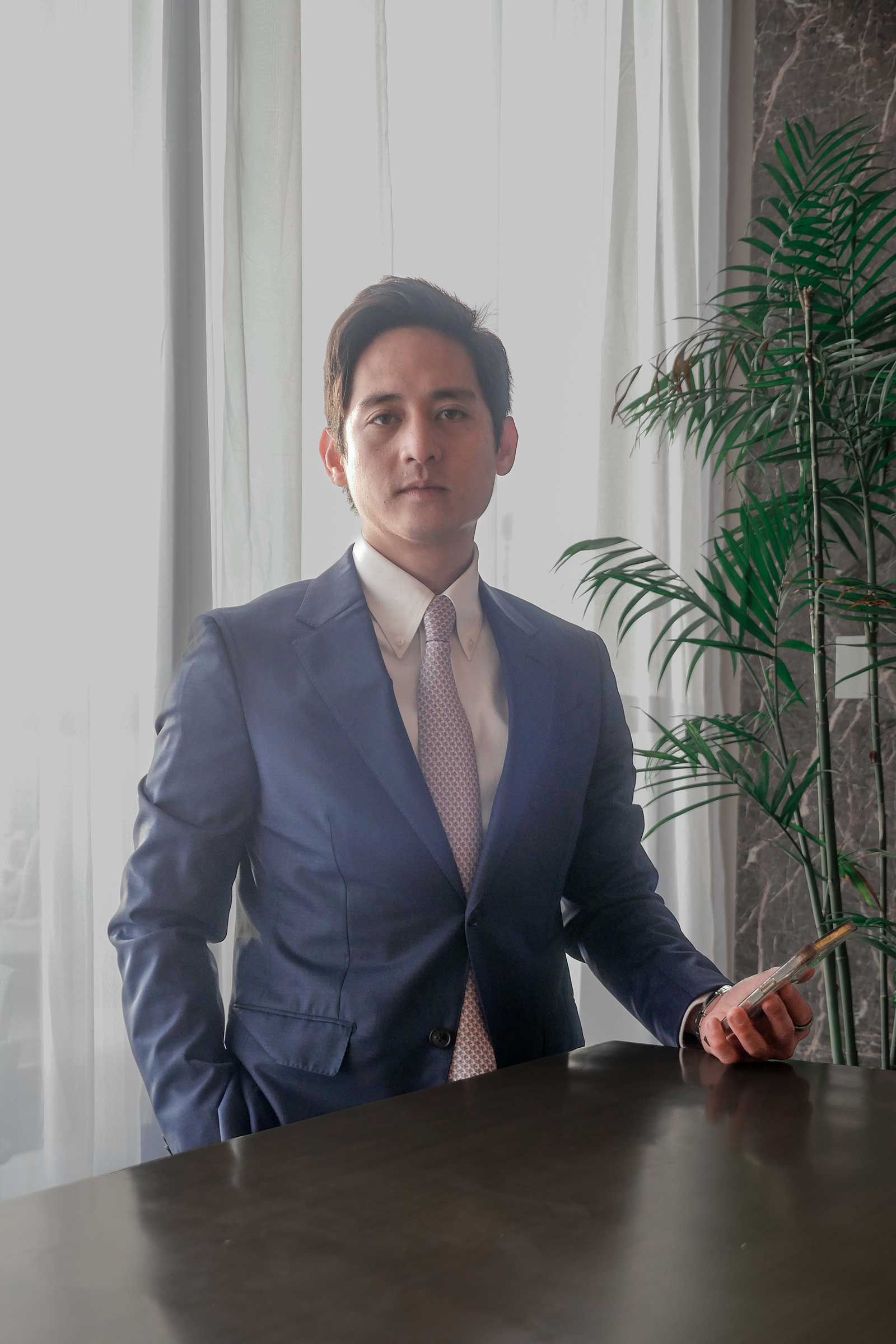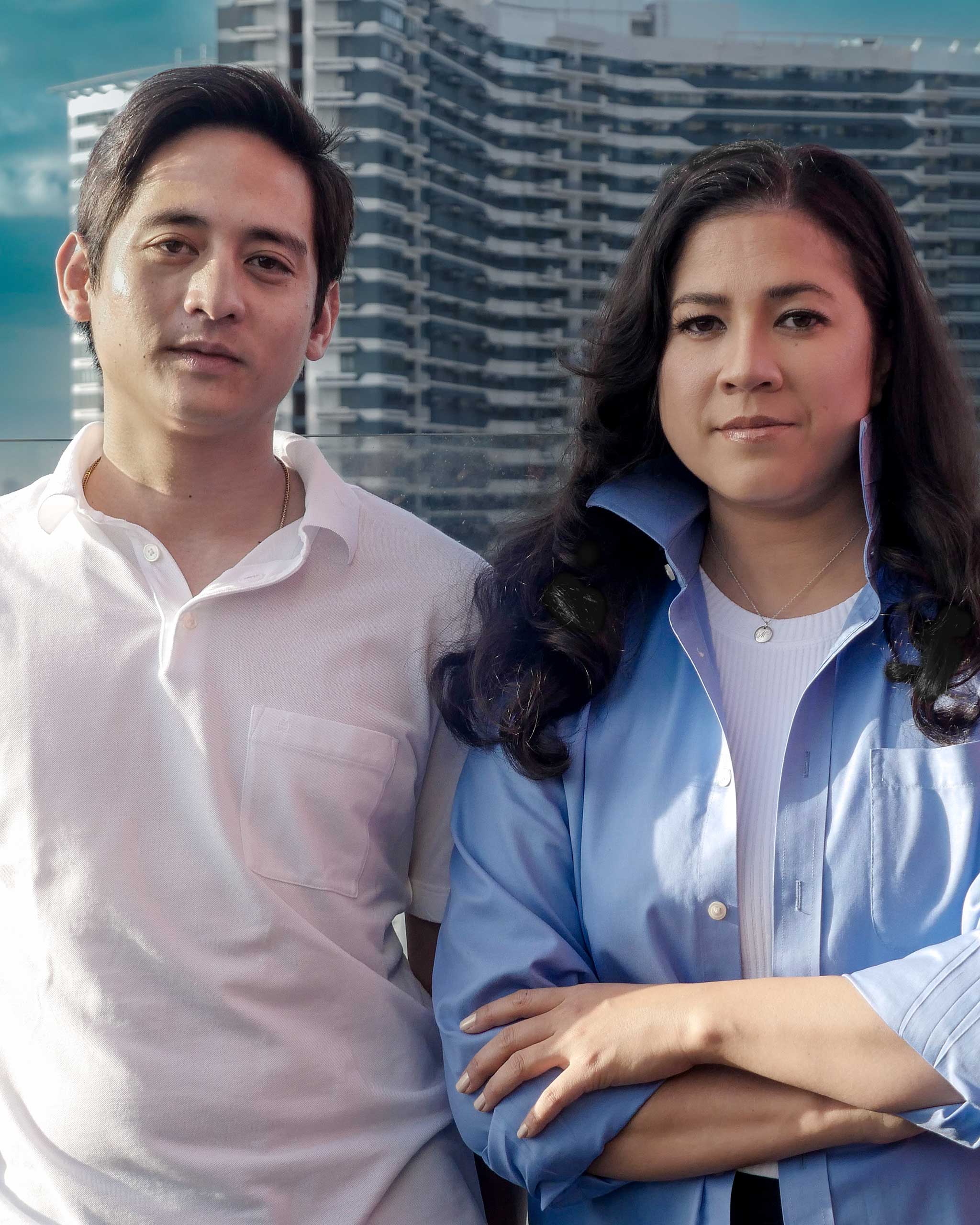Harvard Filipino Duo Rebecca Kersch and Rocco Puno revolutionizing the global payment industry. Courtesy of TANGGapp
Inspired by her Tita Baby, Filipina fintech visionary Rebcca Kersch founded TANGGapp, a global mobile payment app for Overseas Filipinos.
“Our vision is that sending money should be as easy as texting, regardless of where you live, what you earn, or how much you want to send,” Rebecca Kersch says. “This is something that is feasible to envision, but it’s actually not that simple to build.” With a team of 15 fully remote members who are based in the US, the Philippines, and Europe, Rebecca has managed to build a next generation digital payment app that is changing the way overseas Filipinos send and receive money.
Born to a Dutch-Indonesian father and a Filipina-American mother and living across Europe and the United States, Rebecca Kersch was a child of many cultures, but had always kept close ties with her relatives in the Philippines. She studied business extensively, graduating with a double master’s degree in management. Her experience working for a non-profit and the UN sparked in her a yearning to be involved in social impact or public service, so she decided to further her studies at the Harvard Kennedy School.

At Harvard, she took communications and writing courses, thinking she could be a political speechwriter. By the end of the semester, she realized that it was not her strength and spent the winter break reevaluating her choices. Instead of deciding on a job as an end goal, this time Rebecca tried to think about the problems she saw around her and reflected on what resonated with her the most.
One thing that had always struck her was seeing her aunt, who was a Filipino migrant worker, sending money back home to relatives in the province and being charged exorbitant fees, paying an average of eight percent for every transaction. Rebecca also wanted to understand what happens on the receiver side; after all these years, have their lives improved?
“I went to the Philippines to do more research, because they’ve been receiving money from my Tita Baby for years, like decades now,” she says. “And what I learned was that because they don’t have bank accounts, the household economics didn’t change a lot.” Since many of these recipients are unbanked and live from remittance to remittance, they can’t earn interest on savings and are unable to take out loans or avail of other financial services. “It’s like you don’t exist in the financial world.”
Here, Rebecca found the problem she wanted to tackle at the intersection of business and social impact. At first, she tried to find other existing companies working in the remittance and financial inclusion space that she could join, but could not find one that encompassed the issue from the migrant worker to the receivers in the Philippines and how they use money. So she decided to build the solution herself.

At first, she was rejected by the many startup grants, accelerator programs, incubators that she applied for. But she kept at it, as she finetuned her pitch, she was accepted into the Adrian Cheng Fellowship at HKS, which comes with a USD $30,000 grant to put toward her venture. Soon after kicking off TANGapp, she won more grants and competitions and by the time she graduated in June 2020, she had incorporated the business.
TANGapp is refreshingly easy and seamless to use. After downloading it on my phone and linking it to my Gcash, I received a test remittance of USD $10.00 which was immediately reflected in my Gcash account. There is no transfer fee for the sender—only a three percent charge on the exchange rate.
“Most remittance companies just focus on that big send in one go. We focus on this payment size called micro remittances, which is defined as anything under 500 US dollars. What we’re seeing is people are not necessarily sending less, it’s just they normally used to send $1000 a month, now they send $50 to $200, but like three or four times a week.” Senders have more control over when and how much—they can give money for birthday celebrations or emergency medications and it will arrive instantaneously.
The latest update on the app is the ability to send money to the US. “One of the faster growing markets is money moving out the other way from the Philippines to other countries. So there is starting to be a little bit of generational change,” she describes. This feature is handy for parents whose children go to school abroad, for instance. Rebecca shares the example of an overseas Filipina who worked as a nurse in the US and supported her niece’s nursing school education in the Philippines. “After 20 years, the niece is now a head nurse in a big hospital in Manila. Her aunt is about to retire, and she wants to start supporting or paying her back. So there is also a lot of money that also has to go the other way.”

Rocco Lopez Puno, TANGGapp’s Chief Revenue Office, met Rebecca at Harvard and was invited to join the startup, but he always intended to work first for big tech after business school. He worked for Meta as a product marketing manager for nearly three years before coming on board TANGGapp. Coming from a family in media, he shares that he loves the impact that media has on society “and just serving the greater good, and so I always thought I would do that,” he says. “I believe in the mission of TANGGapp and what we’re doing for overseas Filipinos. And part of my role is to go to international markets.” Later this year, TANGapp will be launched in the Middle East.
Aside from its international investors, TANGGapp is backed by Philippine investors like Katrina Razon’s KSR Ventures, Foxmont Capital, and angels from the Manila Angels Investors Network. It raised $2.5 million in its seed round funding, and following its 56x growth, it will soon open its Pre-Series A round of funding. Last year, the app was part of Forbes Asia’s 100 to Watch list.
“We’re really looking to help improve the lives of migrant workers but also unbanked Filipinos,” Rebecca says. With at least 10 million overseas Filipinos and over 50 percent of adult Filipinos in the Philippines unbanked, there is a world of Filipinos whose lives can change in the way they support each other.
- Raising the Bars: Nina Lee Aquino Directs Prison Dancer, Canada’s First-All Filipino Musical Production
- Kate Torralba Wins a Palanca Award for Her First Short Story
- Roots and Currents: Daily Malong Connects The Diaspora With Its Indigenous Heritage
- Back to Buscalan: Apo Whang-Od’s Cover Story Photographer Returns For A Personal Journey
